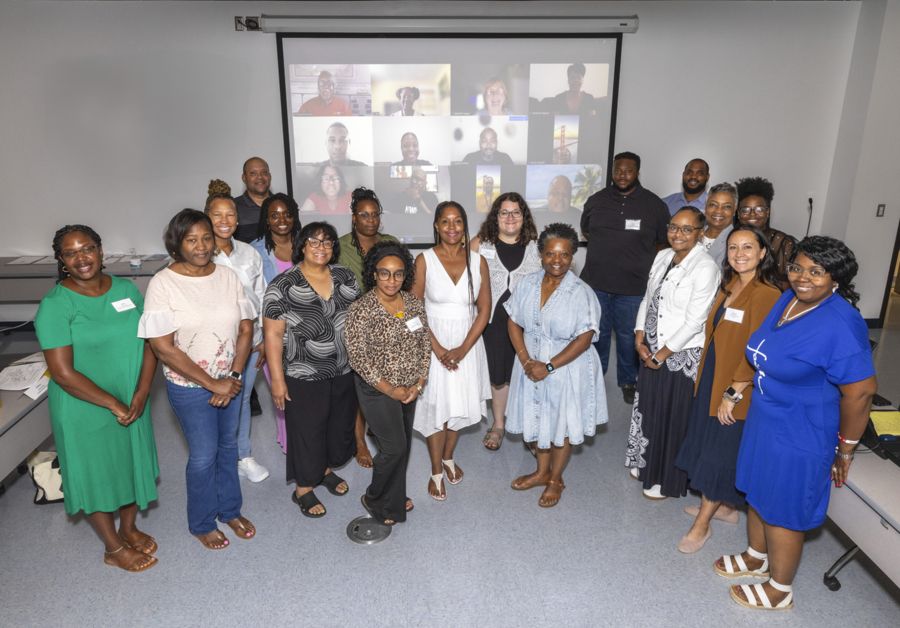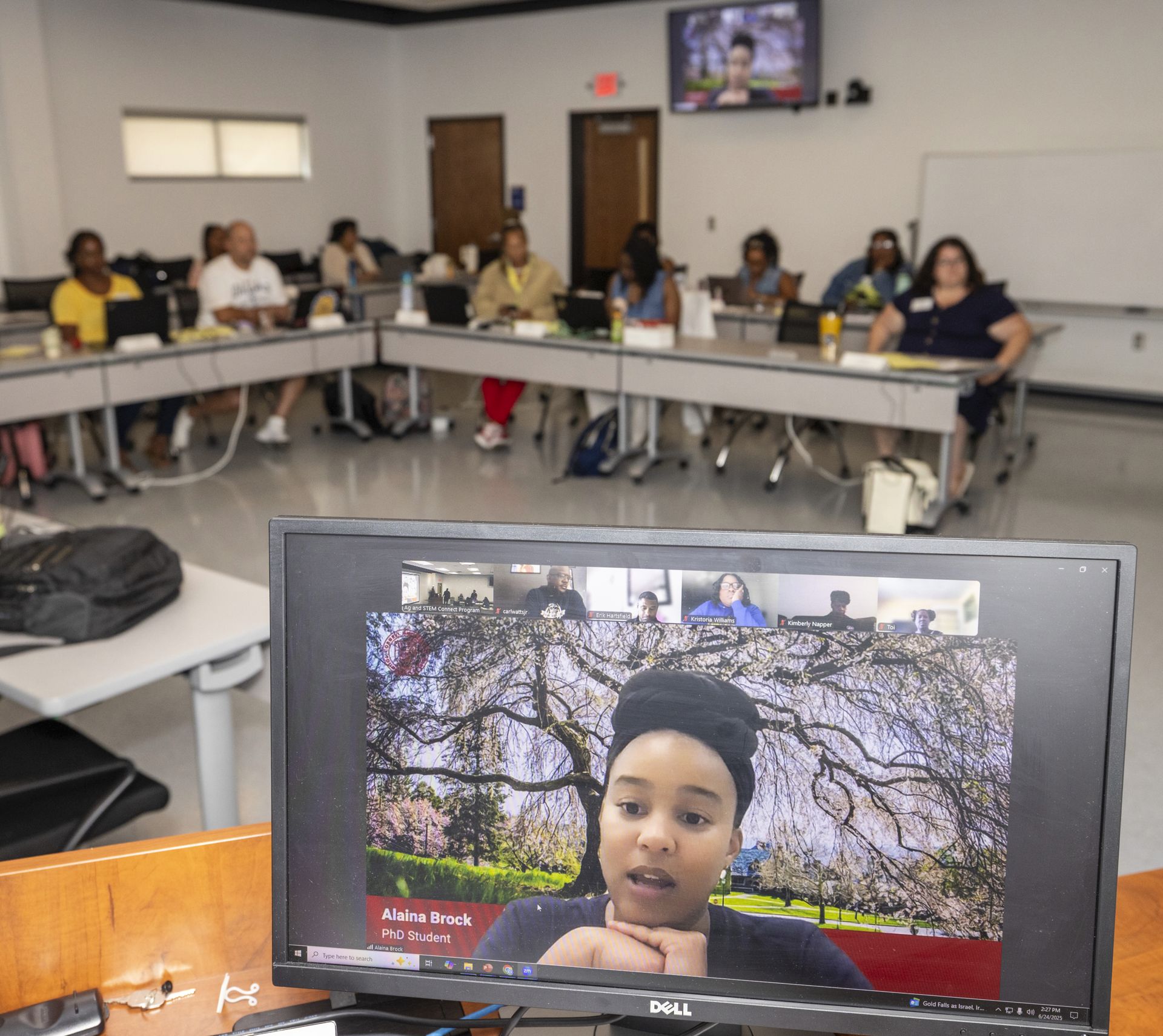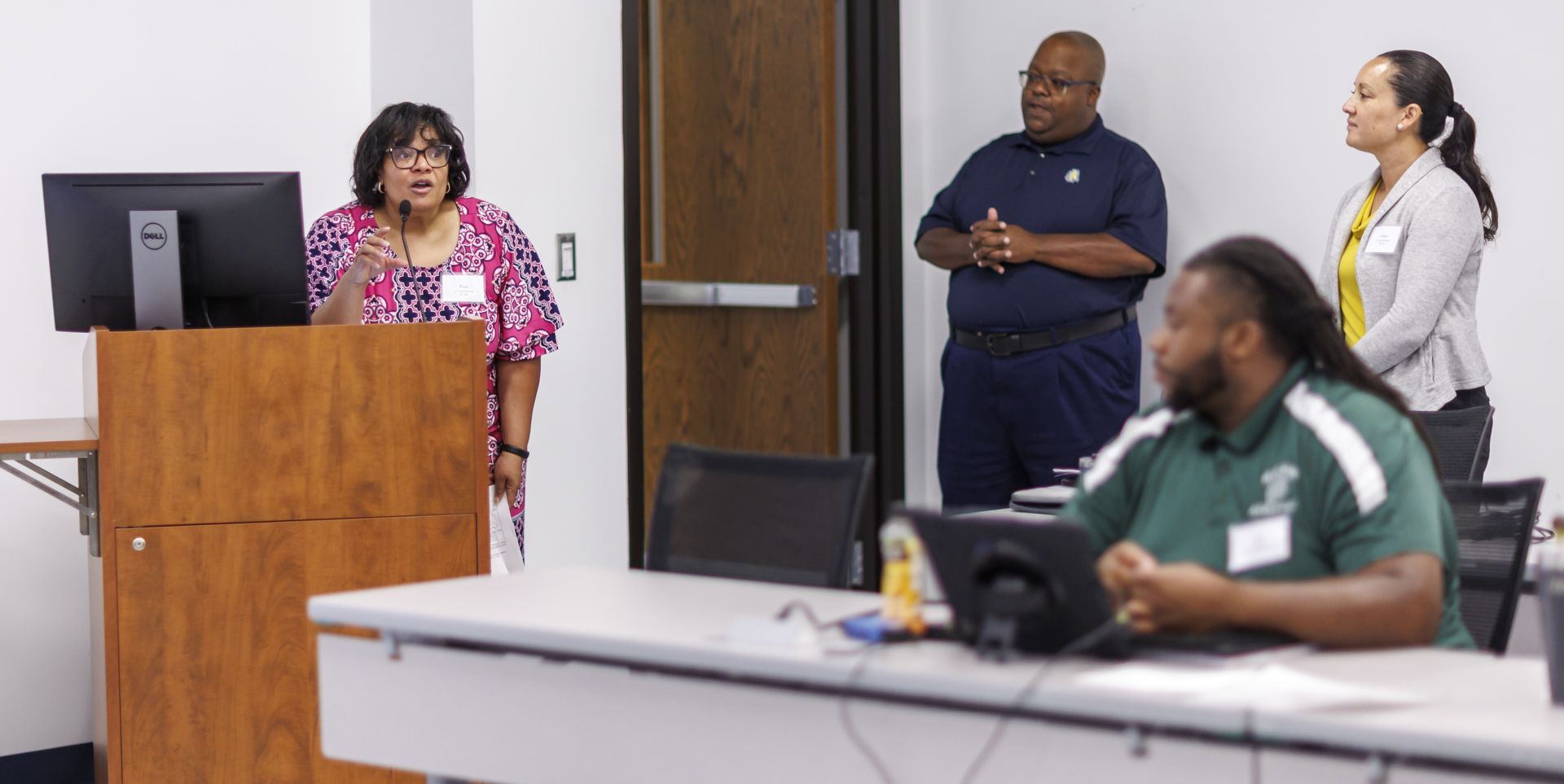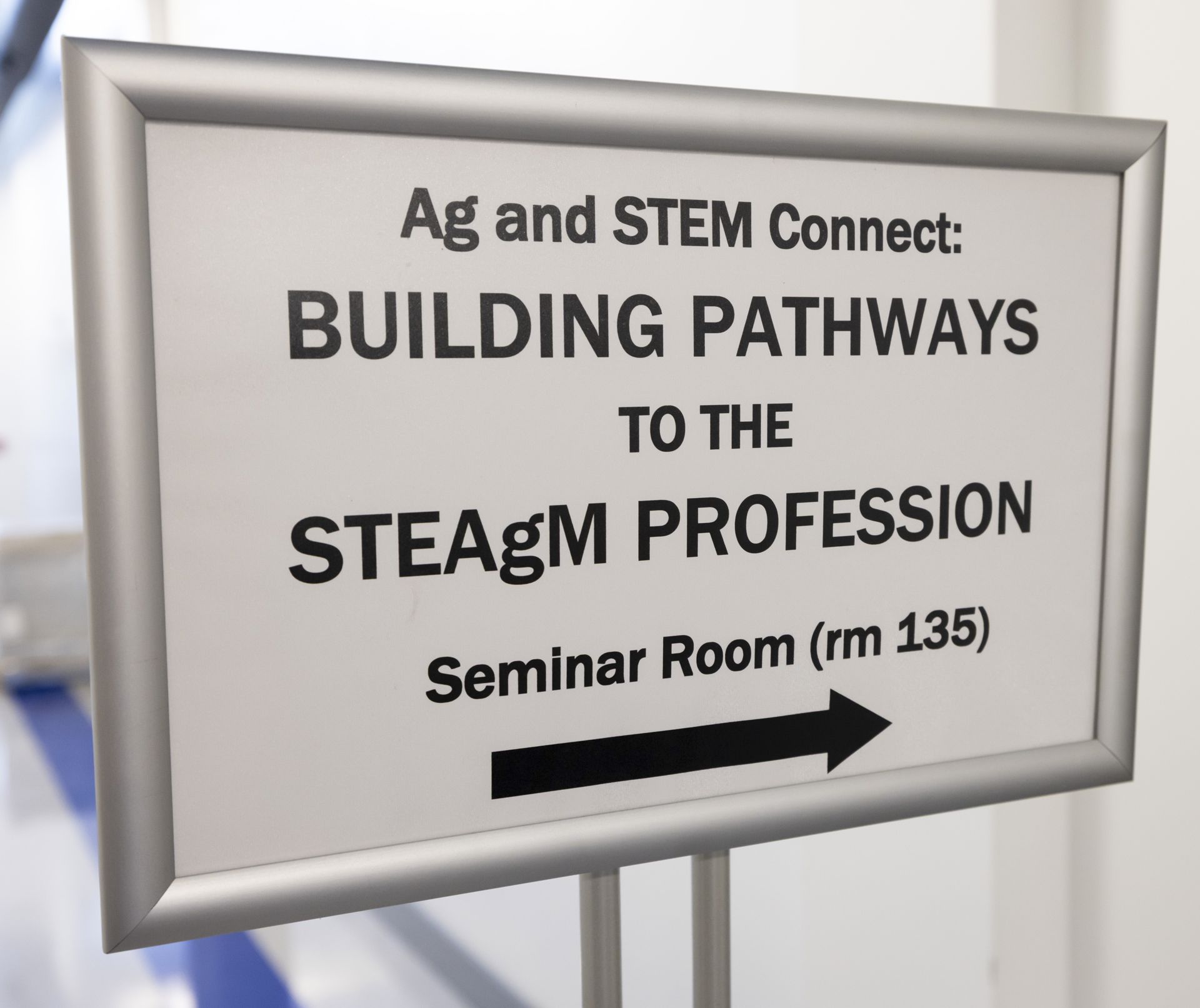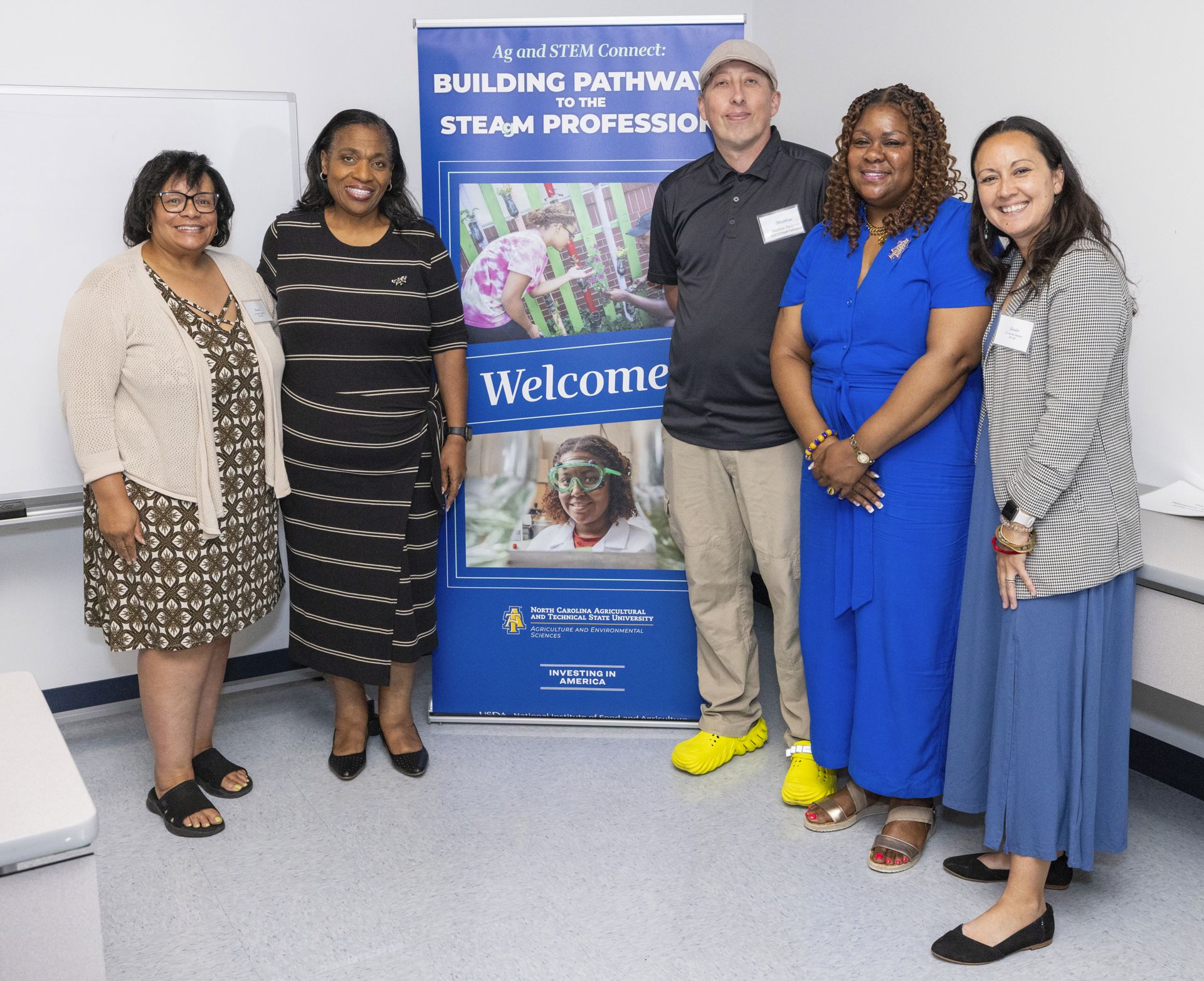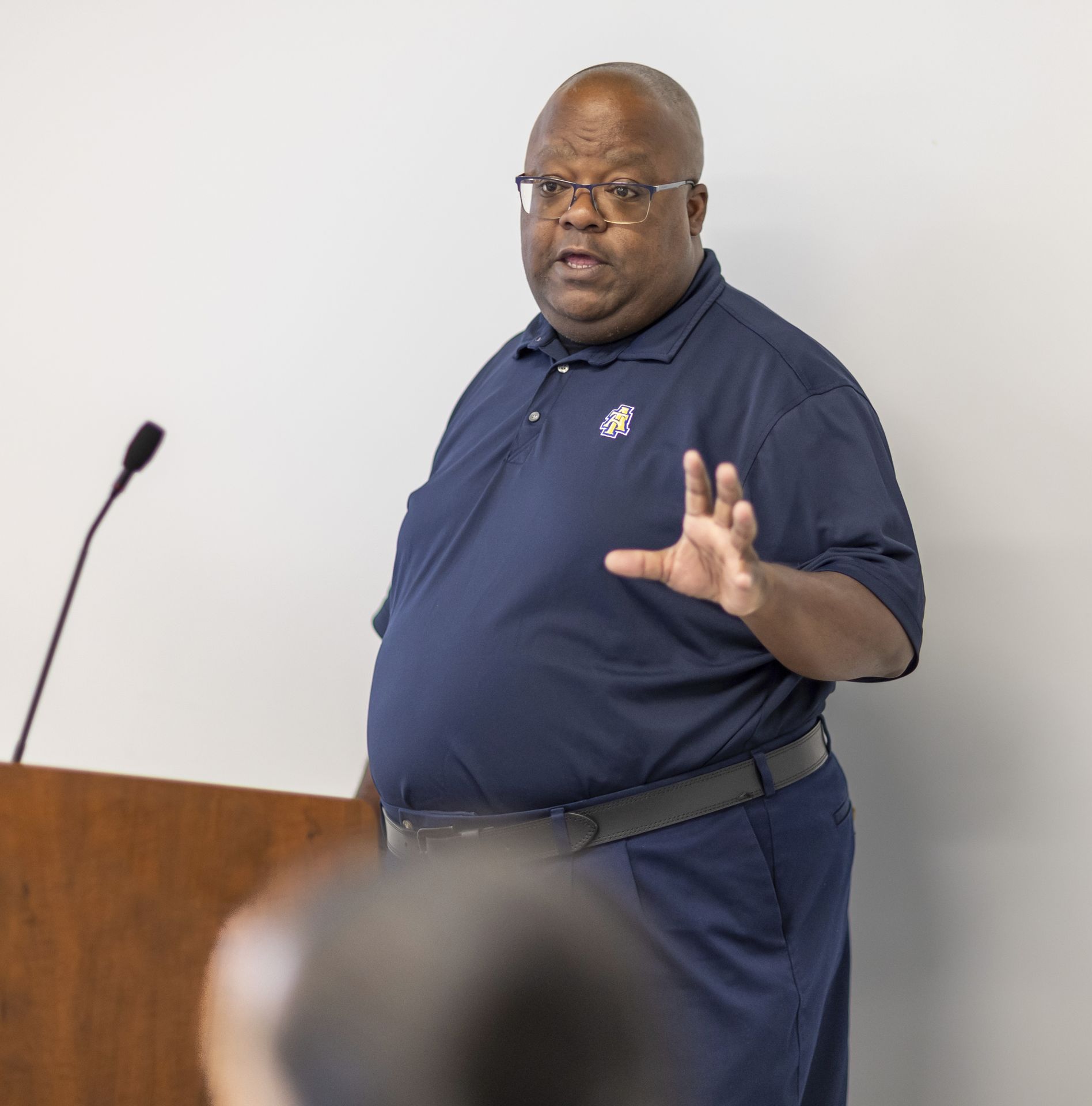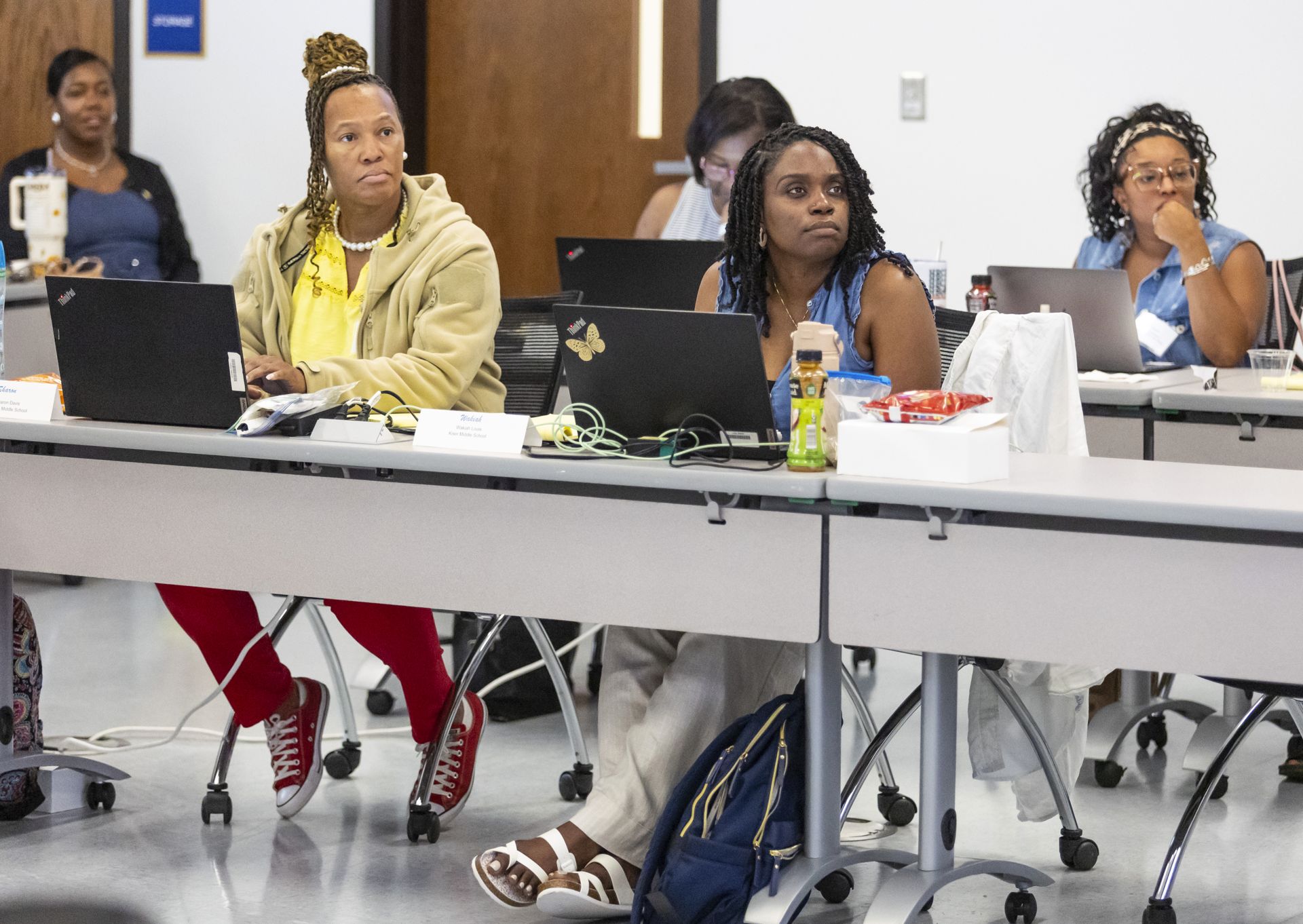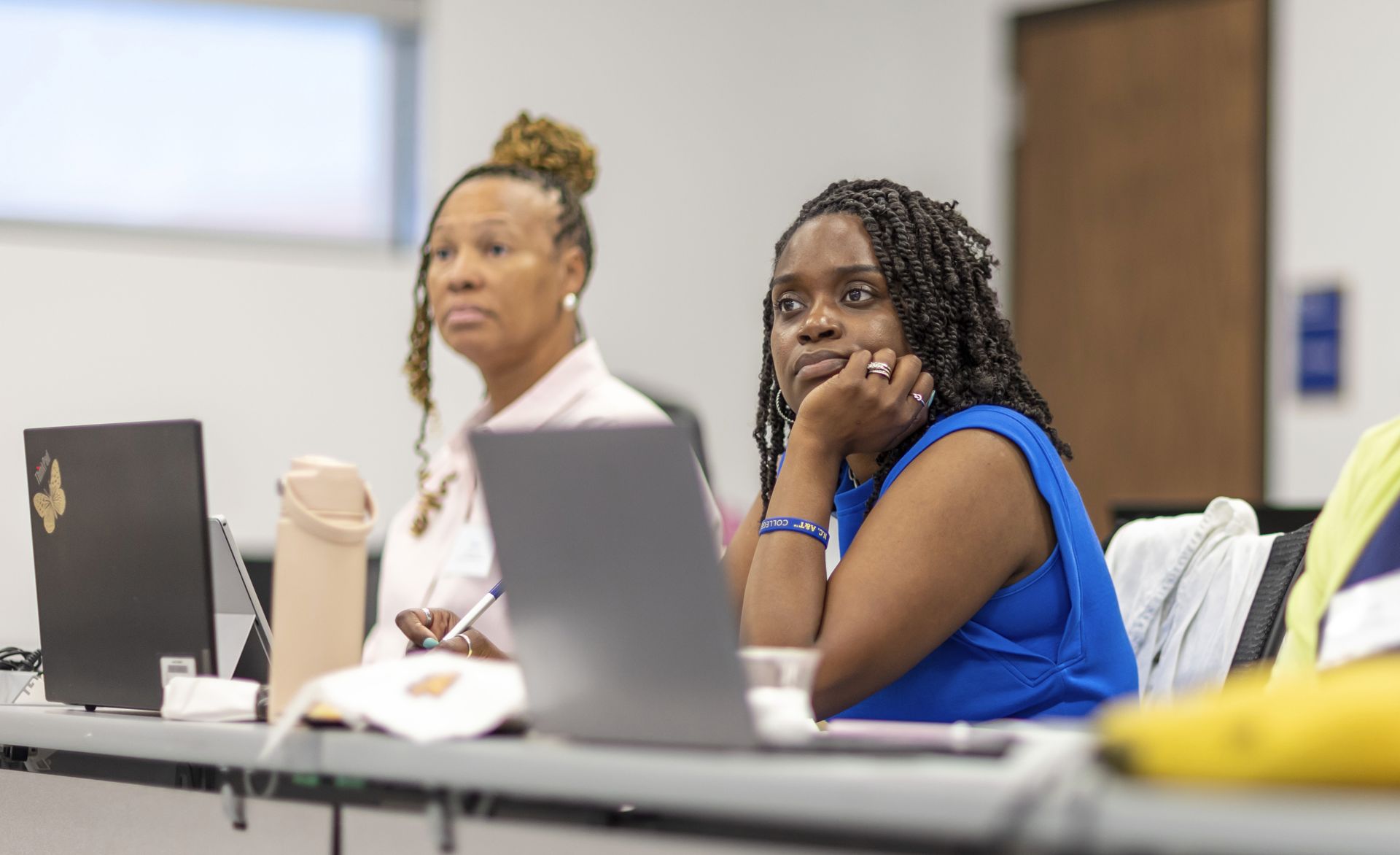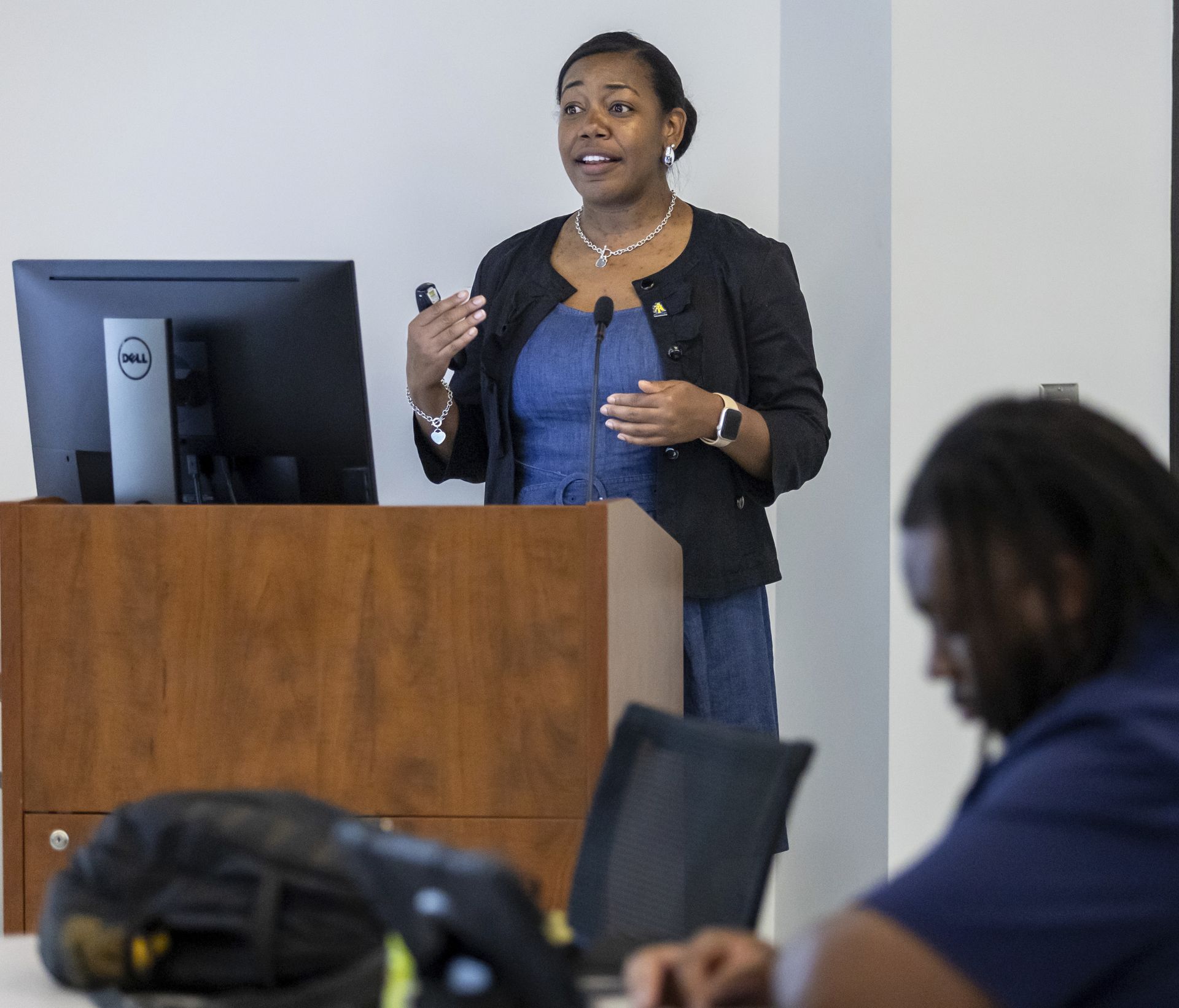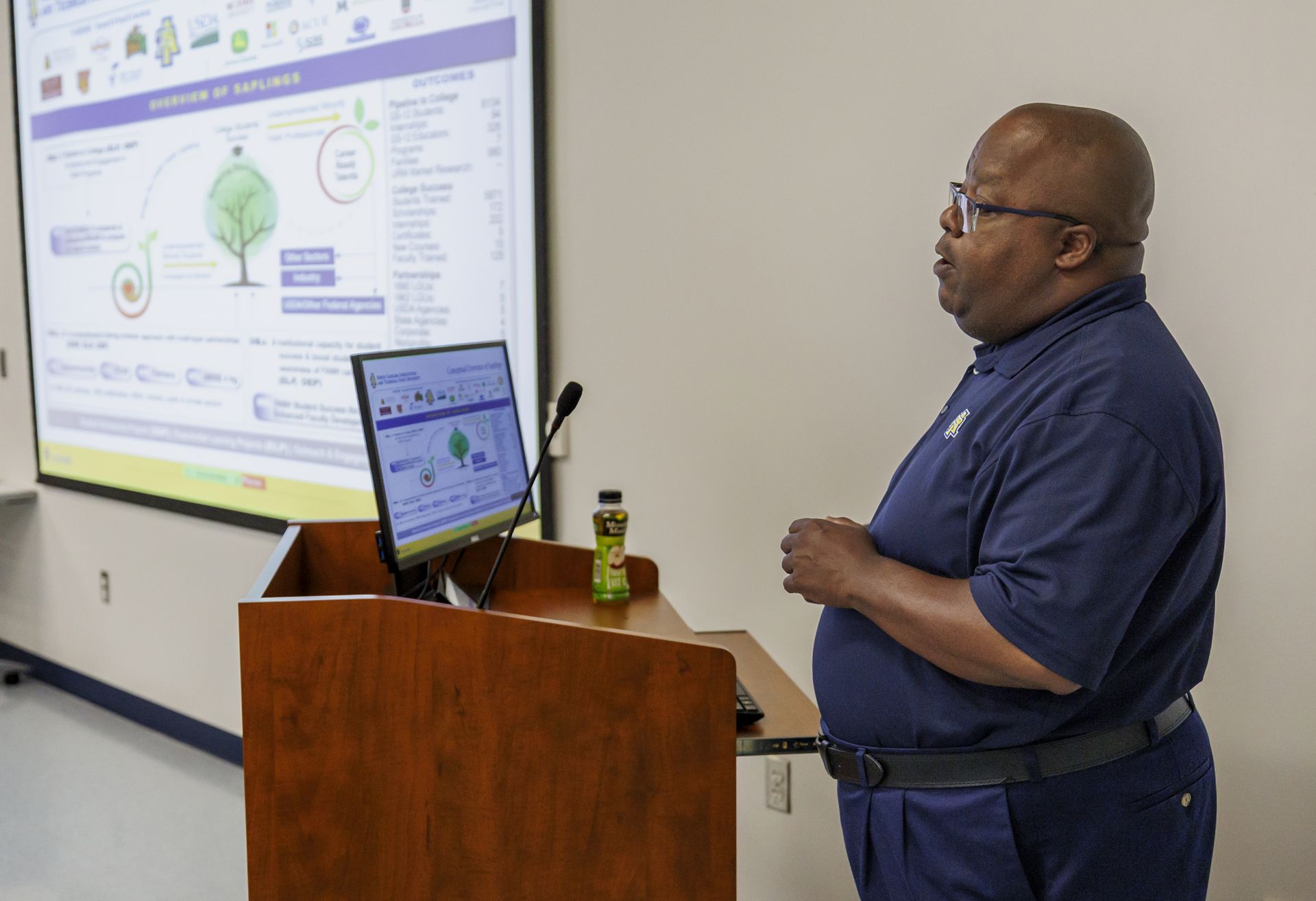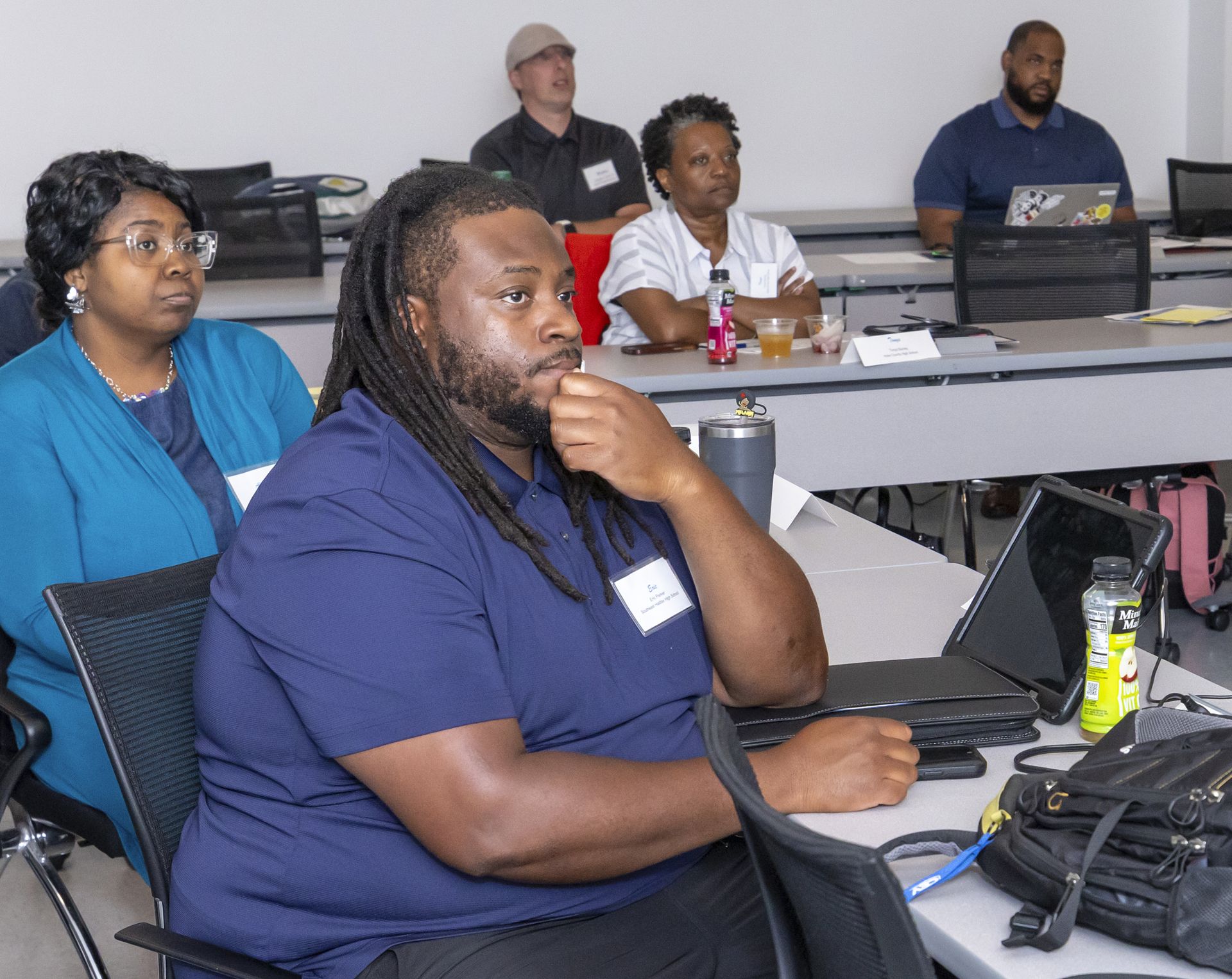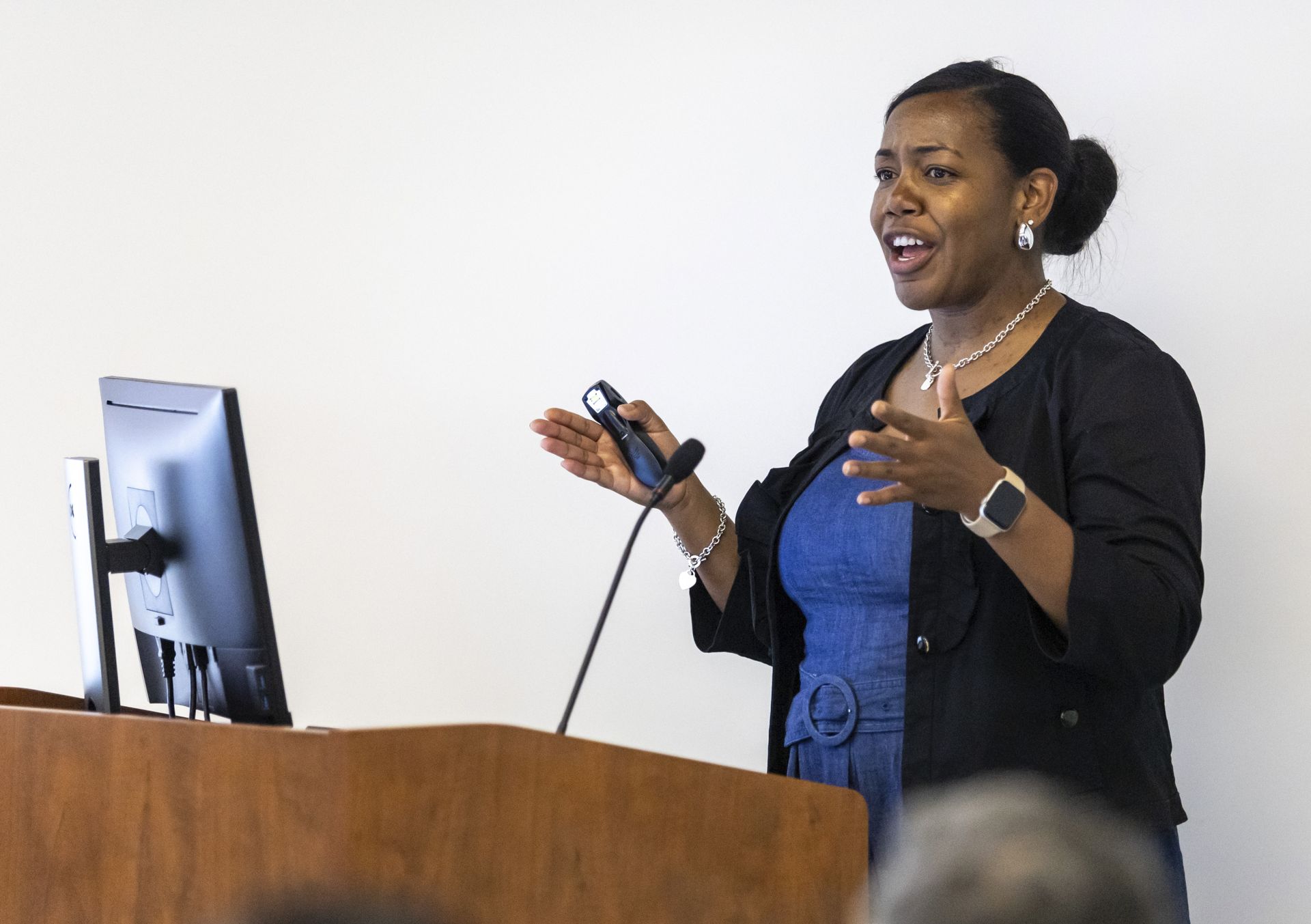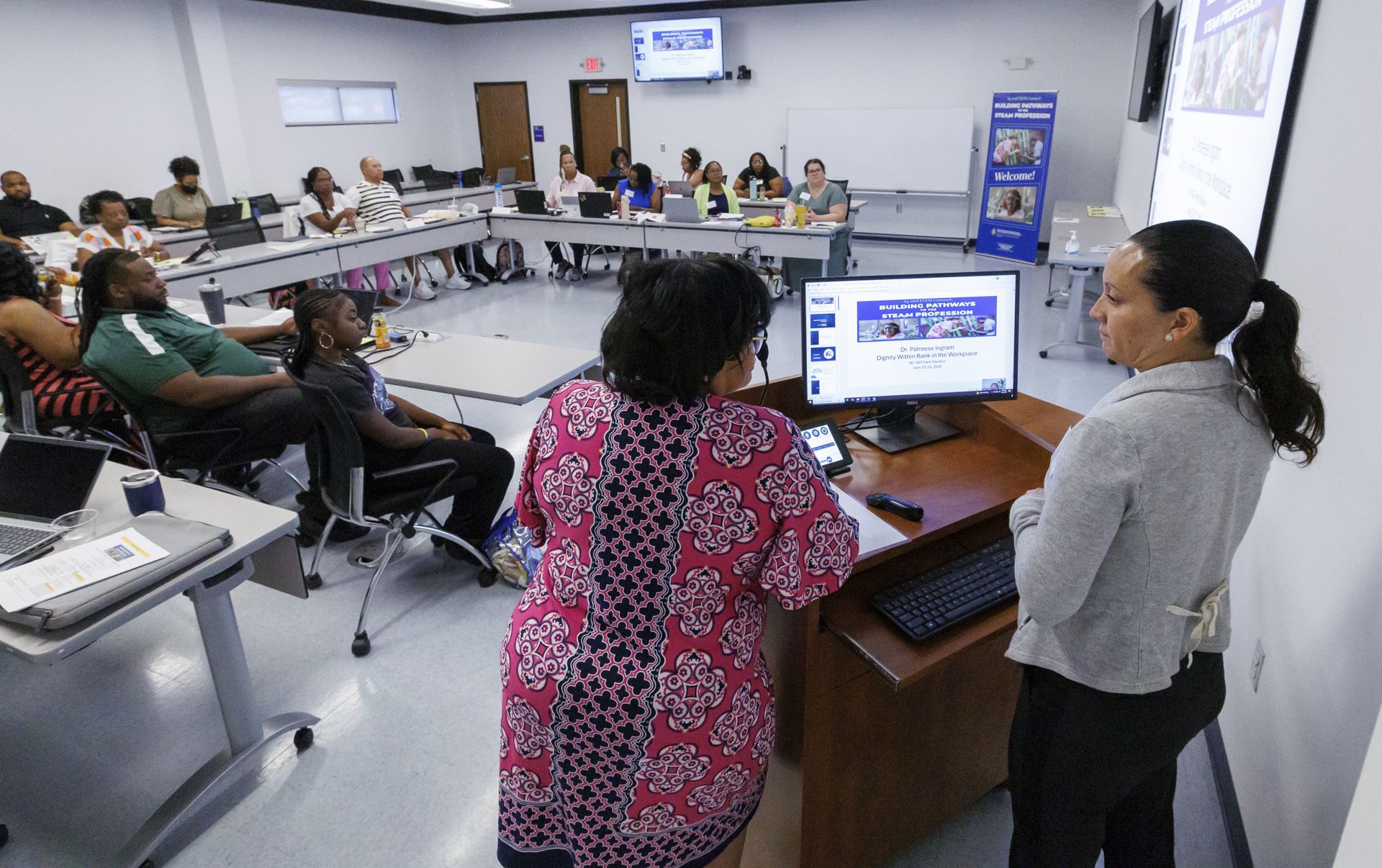Participants and organizers at the Ag and STEM Connect: Building Pathways to the STEAgM Profession workshop, held at the N.C. A&T University Farm Pavilion. The workshop focused on the educational and professional opportunities available in the areas of food, agriculture, natural resources, and health and nutrition.
Efforts to insert agriculture into children’s science, technology, engineering, and mathematics (STEM) education are gaining steam. Or STEA(g)M, as one N.C. A&T program calls it.
Twenty-five secondary educators and guidance counselors gathered in person and virtually at A&T in June for a three-day workshop called “Ag and STEM Connect: Building Pathways to the STEA(g)M Profession.”
Led by agricultural education professor Paula E. Faulkner, Ph.D., and family and consumer sciences professor Jennifer Beasley, Ph.D., in the College of Agriculture and Environmental Sciences, the workshop focused on the educational and professional opportunities available in the areas of food, agriculture, natural resources, and health and nutrition.
The workshop is part of N.C. A&T’s SAPLINGS (System Approach to Promote Learning and Innovation for the Next Generations) program, a five-year $18.1 million project funded by USDA-NIFA through its NextGen program.
Antoine Alston, Ph.D., the college’s associate dean of academic studies, said encouraging the younger generation to go into these fields is important not just for farming, but for related industries like manufacturing and food production.
“All these industries are facing one thing: We have a retiring and older workforce, and somebody will have to feed us —somebody will have to sustain the environment for the next generation,” Alston said.
Alaina Brock ‘24, an A&T alumna who is pursuing her doctorate in food science at Cornell University, said she chose her path as a result of people like those attending the workshop.
“It really started with mentors pouring into me and saying, ‘Hey, you need to try this summer program,’ ” Brock said, referring to another STEM-focused university program.
Justin Tillery, a fifth-generation farmer who founded the home décor company BlackCotton, told the group that his experience attending A&T in 2008 and 2009 gave him a different perspective on his family business.
“I knew about farming from my father and grandfather, but I didn’t know how to position myself as a professional in agriculture,” he said. “I wanted to create a business that empowers farming and empowers how people look at it.”
Brielle Wright, a 2011 A&T agribusiness graduate, said her interest grew from the Farm Bureau’s Institute for Future Agricultural Leaders (IFAL). “I learned that agriculture was more than just farming. That was the thing that changed my life, because I didn’t want anything to do with plows and sows. But now, I love it,” she said. Wright co-founded The Farmers B.A.G.— which stands for Blessed, Abundant, Gifted — with her sister, Michelle. The organization runs a farm school and workshops, and has taken students to Washington to advocate for the farm bill, legislation that affects a range of agricultural and food-related issues, including farm subsidies, conservation programs, food assistance and rural development.
“Our focus is to provide a positive agricultural experience for underrepresented youth, and to also close the information and funding gap for farmers of color,” said Wright, who also is program director for the National Black Growers Council.
Diantha Jones, M.S., a Northeast Guilford Middle School Career and Technical Education (CTE) teacher in McLeansville, said her students are getting the connection between technology and agriculture. “It’s coming across, but it’s hard when they go home and the parents say, ‘Here, go in there and play a game,’ “she said. “We need that parental encouragement.”
Eric Parker, who teaches agriculture at Southeast Halifax High School in Halifax, found the workshop helpful. “Just hearing about all the new technologies coming out that relate with ag education and STEM is useful,” said Parker, who graduated from A&T in 2013 with a degree in agricultural education.
The sessions also will help him “to be a better professional in the school setting,” Parker said.

